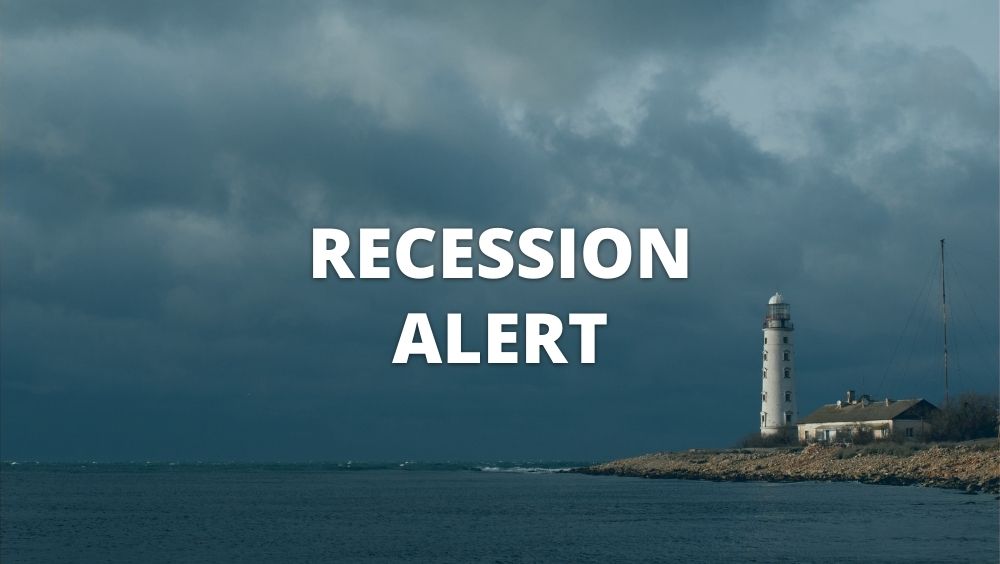There is a lot of talk about a recession these days, and people are asking some version of the question:
“What should we be doing to get ready for the recession?”
I understand the fear and anxiety that exist right now based on different things in the market and the news – high inflation could get higher, the consequences of a major war in Europe, ongoing supply chain issues, interest rate increases, etc.
Those things bring back memories of the 2008/9 recession and, for many of us, the 2000/2001/2002 recession.
While I usually stay out of the forecasting (read: guessing) game, I can confidently predict that we will have a recession.
100% probability.
So…the question isn’t IF a recession happens…it’s WHEN. And that’s the thing no one knows.
Will a recession happen? YES. When will the recession happen? … no one knows.
Also, anyone claiming to know is full of crap because nothing is certain. Even if there is a 99% chance of something happening, there will be one time in 99 it doesn’t.
I wrote about the 2020 Superbowl here, highlighting this with a very real example.
If you begin with the post-WWII era, we have had 13 recessions. Some quick math over those ~80 years shows that we have a recession about every six years. The longest-lasting recession was 1.5 years in the 2007-2009 time period, and the shortest was in 2020 for two months.
Most of us have lived through both the longest and the shortest recessions on record.
So, what’s the answer to the question, “What should we be doing to get ready for the recession?”
Answer – nothing. You don’t get ready for the recession because that requires you to know (which you can’t) WHEN the recession will happen.
Instead, you get ready for a recession.
Wait – what’s the difference? Reread it and note the subtle difference…”the recession” and “a recession.”
No one should be “maneuvering their portfolio,” to use a phrase I heard on CNBC the other day. Instead, it would be best to account for the 100% eventuality of a recession in your overall wealth plan and investment strategy.
In other words…(oh shit, here he goes again…)
ALWAYS be ready for a recession by being financially unbreakable. That means identifying what your cash needs are for a period of time that makes sense to you. And if you don’t know that time period, start by using 18 months.
Why?
Reread this:
If you begin with the post-WWII era, we have had 13 recessions. Some quick math over those ~80 years shows that we have a recession about every six years. The longest-lasting recession was 1.5 years in the 2007-2009 time period, and the shortest was in 2020 for two months.
Think of it like this – how good does it feel to fill your gas tank up and then the next day see prices have increased by $0.50?
Same thing here – raise cash during market highs and feel good when you need it.
Cash is King for many reasons, but primarily it ensures you don’t need to sell assets when the market is down or in the middle of a sell-off…and this increases the probability of you being financially unbreakable.
By the way…it’s worth going back a DECADE and reading what I was writing back then. My writing style has changed a lot (mostly because I’m now way more comfortable writing in my own voice and with personality, thanks to everyone telling me they enjoy when I write like I speak).
In this blog from March of 2012, it’s instructive to remember all the events that were worrying people:
In just the last year, we have dealt with the European debt crisis; the Arab Spring; regime changes in Egypt, Tunisia, and Libya; escalating tensions over Iran; the death of a leader in North Korea; U.S. political turmoil; and a volatile August where 60 percent of the trading days saw moves of greater than +/- 1 percent in the S&P 500…not to mention all of the bad news from 2010 and 2009. Even with all of that, investors that stuck with it have seen the S&P 500, as well as the tech and consumer discretionary sectors, rebound quite strongly.
I concluded with:
I’m not trying to minimize the effects of what happened; I’m just saying that having a good plan should enable investors to remove emotion from the equation, and that’s a healthy place to be.
Keep looking forward.



